2016 Afternoon Panelists
Presenter Bios
Establishing Your Research Agenda as a New Professor – Panel for Humanities and Social Sciences
 Julia H. Chang, Assistant Professor of Spanish, Romance Studies, Cornell University
Julia H. Chang, Assistant Professor of Spanish, Romance Studies, Cornell University
Julia H. Chang is also a member of the core faculty in Feminist, Gender, and Sexuality Studies at Cornell. Her research fields include nineteenth-century Spanish literature and culture with a special focus on the realist novel, gender and sexuality studies, medical hygiene, and transpacific studies. She holds a Ph.D. in Hispanic Language and Literatures from University of California, Berkeley. Before coming to Cornell, Dr. Chang was on the faculty at Brown University, where she taught courses on Spanish literature, gender studies, and feminism.
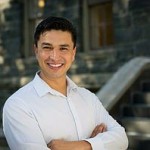 Sergio Garcia-Rios, Assistant Professor of Government and Latino Studies, Cornell University.
Sergio Garcia-Rios, Assistant Professor of Government and Latino Studies, Cornell University.
Sergio Garcia-Rios was born and raised in Durango, México, but considers El Paso, Texas, his second home, a fronterizo by choice. His research investigates the formation and transformation of Latino identities as well as the political implications of these transformations. He also examines voter turnout, political participation, and public opinion, especially among Latino immigrants. His other academic interests include issues related to Latinos and the Voting Rights Act, border issues and border research, and the politics of Mexico.
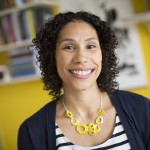
Anna Haskins, Assistant Professor of Sociology, Cornell University
Anna Haskins’ scholarly interests are in the areas of educational inequality, social stratification, race and ethnicity, and the intergenerational social consequences of mass incarceration. Her current research assessing the effects of paternal incarceration on children’s educational outcomes and engagement in schooling has been published in Sociological Science, Sociology of Education, and Social Science Research in addition to being featured on Vox.com and in The Washington Post. Overall, her work aims to focus an eye toward understanding the persistence of racial and gendered disparities in outcomes and the role these inequities play in the transmission of inequality or opportunity from one generation to the next. Through a layered examination of multiple dimensions of social stratification, her work studies how processes and institutions mitigate or exacerbate social inequities and works to document their potential consequences for American families and communities.
Shake Hands, Kiss Babies, and Ask for Money: A Primer in Academic Survival Skills – for STEM fields
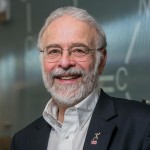 Héctor Abruña, Émile M. Chamot Professor of Chemistry and Director of the Energy Materials Center, Cornell University
Héctor Abruña, Émile M. Chamot Professor of Chemistry and Director of the Energy Materials Center, Cornell University
Héctor Abruña completed his graduate studies with Royce W. Murray and Thomas J. Meyer at the University of North Carolina at Chapel Hill in 1980 and was a postdoctoral research associate with Allen J. Bard at the University of Texas at Austin from 1980-81. After a brief stay at the University of Puerto Rico, he joined Cornell in 1983. He was Chair of the Department of Chemistry and Chemical Biology from 2004-2008. Prof. Abruña has been the recipient of numerous awards including a Presidential Young Investigator Award, Sloan Fellowship, J. S. Guggenheim Fellowship, and J. W. Fulbright Senior Fellow. He is the recipient of the Electrochemistry Award for the American Chemical Society (2008), and the C.N. Reilley Award in Electrochemistry for 2007. He was elected Fellow of the American Association for the Advancement of Science in 2007, member of the American Academy of Arts and Sciences in 2007 and Fellow of the International Society of Electrochemistry in 2008. He recived the D. C. Grahame Award from the Electrochemical Society for 2009 and the Faraday Medal of the Royal Society for 2011 and the Brian Conway Prize from the International Society of Electrochemistry for 2013. Most recently, he was named Fellow of the Electrochemical Society. Prof. Abruña is the co-author of over 430 publications and has given over 575 invited lectures world-wide. Out of the 50 students that, to date, have obtained a Ph.D. under his direction, 14 have gone on to faculty positions.
How and What to Negotiate for Your First Faculty Position
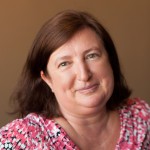
Christine Holmes, Director of the Office of Postdoctoral Studies, Cornell University
In her role at Cornell, Christine Holmes provides support for over 500 postdocs on campus. Christine has worked at Cornell for over 20 years, and became the first director of the Office of Postdoctoral Studies in 1995. In that capacity, she monitors the status and needs of the campus postdoctoral community; serves as an advocate for postdoctoral issues to the Graduate School and Cornell’s administration; provides career counseling for all postdocs; and organizes workshops, seminars, and social activities for postdocs. She received her BS in Management from Nazareth College in 1985 and her MBA from St John Fisher College in 1988. Prior to joining Cornell she worked in the trade show Industry supporting diverse marketing efforts for her clients.
Negotiation Workshop – Future Professors Institute 2016 (PDF)
Organizer Bios
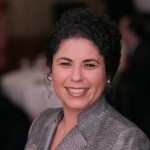 Sara Xayarath Hernández, Associate Dean for Inclusion & Student Engagement for the Graduate School, Cornell University
Sara Xayarath Hernández, Associate Dean for Inclusion & Student Engagement for the Graduate School, Cornell University
Sara Xayarath Hernández serves as one of Cornell’s five University Diversity Officers and as a core member of the Dean’s leadership team, providing vision, leadership, and overall management for Graduate School initiatives and policies related to diversity and inclusion. Hernández directs the Office of Inclusion & Student Engagement (OISE), which leads the Graduate School’s efforts to recruit, retain, and support a diverse student body with a particular focus on students from groups historically underrepresented in graduate education. OISE in partnership with other Graduate School and university partners, leads student engagement and professional development programming that fosters community and develops skills to enhance academic success, improve retention and completion rates, and prepare students to pursue academic and non-academic careers following attainment of their graduate degrees. Hernández has served as a University Member Representative to the National GEM Consortium since 2009. In 2010, GEM recognized Hernández as the University Member Representative of the Year and in 2013, she became the Standing Chair for the Operations Committee. Hernández serves as the Co-PI for Cornell’s Alfred P. Sloan Foundation funded UCEM Program and previously served as the Co-PI for Cornell’s NSF funded Louis Stokes Alliance for Minority Participation and STEM Talent Expansion Programs. Hernández holds a Bachelor of Arts in Zoology from Ohio Wesleyan University and a Master of Regional Planning from Cornell University.
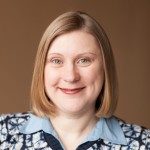 Colleen McLinn, Director of Cornell University’s Center for the Integration of Research, Teaching, and Learning (CU-CIRTL)
Colleen McLinn, Director of Cornell University’s Center for the Integration of Research, Teaching, and Learning (CU-CIRTL)
Colleen McLinn directs CU-CIRTL, a Graduate School initiative involving close collaboration with the Center for Teaching Excellence. As CU-CIRTL Program Director, she prepares graduate students and postdocs for successful academic careers. She coordinates Cornell’s participation in the CIRTL Network, a group of 46 research universities collaboratively offering seminars and coursework on academic career preparation topics and three important themes for advancement of undergraduate education: teaching as research, learning communities, and learning through diversity. Her interests include helping graduate students and postdocs develop effective mentoring strategies and build their skills in innovative and evidence-based teaching methods. Dr. McLinn received a Ph.D. in Ecology, Evolution, and Behavior from University of Minnesota and previously served as an extension associate at the Cornell Lab of Ornithology, where she developed online and print curriculum materials and lead NSF grant-funded science education efforts. In her spare time, she serves on the Advisory Board for the Cayuga Lake Floating Classroom Project.
